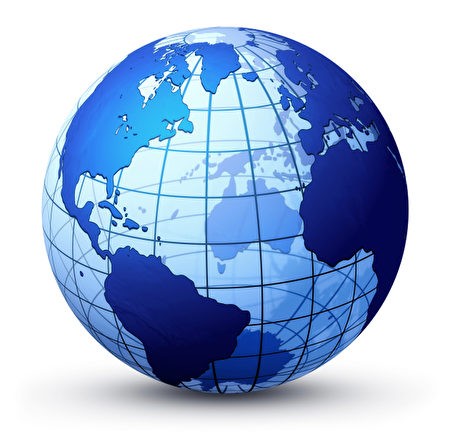
buy fake princeton university degree
how much can i buy a princeton university diploma online? buy fake Princeton University diploma. buy fake Princeton University degree, buy fake Princeton University certificate. buy fake Princeton University diploma online. how to buy a fake Princeton University degree? how to buy a fake Princeton University diploma?
Princeton University is a private Ivy League research university in Princeton, New Jersey. Founded in 1746 in Elizabeth as the College of New Jersey, Princeton is the fourth-oldest institution of higher education in the United States and one of the nine colonial colleges chartered before the American Revolution. The institution moved to Newark in 1747, and then to the current site nine years later. It officially became a university in 1896 and was subsequently renamed Princeton University.
The university is governed by the Trustees of Princeton University and has an endowment of $37.7 billion, the largest endowment per student in the United States. Princeton provides undergraduate and graduate instruction in the humanities, social sciences, natural sciences, and engineering to approximately 8,500 students on its 600 acres (2.4 km2) main campus. buy fake diploma, buy fake degree, buy fake certificate. buy fake Princeton University diploma, buy fake Princeton University degree. buy fake Princeton University certificate. It offers postgraduate degrees through the Princeton School of Public and International Affairs, the School of Engineering and Applied Science, the School of Architecture and the Bendheim Center for Finance. The university also manages the Department of Energy’s Princeton Plasma Physics Laboratory and is home to the NOAA’s Geophysical Fluid Dynamics Laboratory. It is classified among “R1: Doctoral Universities – Very high research activity” and has one of the largest university libraries in the world.
Princeton uses a residential college system and is known for its upperclassmen eating clubs. The university has over 500 student organizations. Princeton students embrace a wide variety of traditions from both the past and present. The university is a NCAA Division I school and competes in the Ivy League. The school’s athletic team, the Princeton Tigers, has won the most titles in its conference and has sent many students and alumni to the Olympics.
As of October 2021, 74 Nobel laureates, 16 Fields Medalists and 16 Turing Award laureates have been affiliated with Princeton University as alumni, faculty members, or researchers. In addition, Princeton has been associated with 21 National Medal of Science awardees, 5 Abel Prize awardees, 11 National Humanities Medal recipients, 215 Rhodes Scholars and 137 Marshall Scholars. Two U.S. Presidents, twelve U.S. Supreme Court Justices (three of whom currently serve on the court) and numerous living industry and media tycoons and foreign heads of state are all counted among Princeton’s alumni body. Princeton has graduated many members of the U.S. Congress and the U.S. Cabinet, including eight Secretaries of State, three Secretaries of Defense and two Chairmen of the Joint Chiefs of Staff.
Princeton University, founded as the College of New Jersey, was shaped much in its formative years by the “Log College”, a seminary founded by the Reverend William Tennent at Neshaminy, Pennsylvania in about 1726. While no legal connection ever existed, many of the pupils and adherents from the Log College would go on to financially support and become substantially involved in the early years of the university. While early writers considered it as the predecessor of the university, the idea has been rebuked by Princeton historians.
The founding of the university itself originated from a split in the Presbyterian church following the Great Awakening. In 1741, New Light Presbyterians were expelled from the Synod of Philadelphia in defense of how the Log College ordained ministers. The four founders of Princeton, who were New Lights, were either expelled or withdrew from the Synod and devised a plan to establish a new college, for they were disappointed with Harvard and Yale’s opposition to the Great Awakening and dissatisfied with the limited instruction at the Log College. They convinced three other Presbyterians to join them and decided on New Jersey for where to found the school, as at the time, there was no institution between Yale in New Haven, Connecticut and the College of William & Mary in Williamsburg, Virginia; it was also where some of the founders preached. Although their initial request was rejected by the Anglican governor, Lewis Morrison, the acting governor after Morrison’s death, John Hamilton, granted a charter for the College of New Jersey on October 22, 1746. In 1747, approximately five months after acquiring the charter, the trustees elected Jonathan Dickinson as president and opened in Elizabeth, New Jersey, where classes were held in Dickinson’s residence. With its founding, it became the fourth-oldest institution of higher education in the United States, and one of nine colonial colleges charted before the American Revolution. Although initially founded with the goal to train ministers, the founders instead aimed to create a college of liberal arts and sciences. Though the school was open to those of any religious denomination, with many of the founders being of Presbyterian faith, the college became the educational and religious capit

 USA Diplomas
USA Diplomas Canada Diplomas
Canada Diplomas UK Diplomas
UK Diplomas Australia Diplomas
Australia Diplomas Germany Diplomas
Germany Diplomas Malaysia Diplomas
Malaysia Diplomas Singapore Diplomas
Singapore Diplomas Other countries
Other countries Transcript-Form.xlsx
Transcript-Form.xlsx
